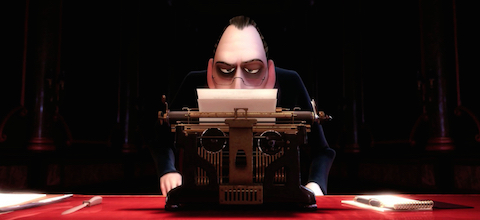Bad reviewer and editor habits (is this you?)

“Please review the attached draft,” reads the email. Now it’s your job to make things better by applying your expertise. You can be helpful . . . or you can be hated. See if you recognize yourself in the list below; if you do, resolve to stop behaving like an ass and help your writers instead.
The deadline dodger
Your signature behavior: Ignoring suggested deadline, then turning in a draft review days or weeks late.
Why you’re a problem: Writers set deadlines so they can get started on revisions. If you turn in an edit late, they have to start the rewrite over.
If this is you: If you can’t get to a draft in time, tell the writer whether your edits are essential or not (“Please wait for me” or “Please go own without my review.”). If your review will be late, commit to when you expect to complete it.
Resolve to be better: This behavior makes writers crazy and undermines productivity. If your reviews are essential, put those deadlines into your to-do list and take them seriously. If they’re not essential and you’re always late, maybe the process will go better if you take yourself off the review list.
The last draft havoc-wreaker
Your signature behavior: Waiting until the very last draft; suggesting major revisions when the document is complete and nearly final.
Why you’re a problem: As drafts near completion, major revisions are likely to introduce errors.
If this is you: If you’re reviewing a near-final draft, make minor suggestions less likely to disrupt the manuscript. For each suggestion, ask, “Is this more likely to fix a problem, or create a new one?”
Resolve to be better: Your responsibility was to make these suggestions earlier on, so that the writer and other reviewers could see if they actually made the manuscript better. Treat early draft reviews just as seriously as the near-final ones.
The boundary trampler
Your signature behavior: Straying out of your reviewing lane; for example, technical reviewers insisting on rewriting language they don’t like.
Why you’re a problem: Your suggestions are likely to contradict those from others with appropriate expertise.
If this is you: Ask writers “what are you looking for from me?” Then do what you can to deliver it. If you want to be an editor or rewrite prose, ask the writer if she thinks that would be helpful.
Resolve to be better: Spend your reviewing time on what you know about (technology, legal, PR, language, or whatever the reviewer is asking you for). For each suggestion, ask “Is this what the writer needs from me, personally?”
The open-ended suggester
Your signature behavior: Instead of suggesting solutions, you only identify problems. Your comments are often questions: “Could we add x, or change y?”
Why you’re a problem: The writer has no idea what to do with your “helpful” suggestions — go in a new direction, research solutions to the problem, or ignore them.
If this is you: Commit to identifying solutions when you find problems. If you ask a question, suggest an answer to the question.
Resolve to be better: Recognize that you are not a critic, commenting on what you read; you are a collaborator, helping to to improve it.
The redirector
Your signature behavior: Seeing the document as a means to further your own goals, and suggesting changes to that effect.
Why you’re a problem: If the writer follows your suggestions, the document will no longer accomplish its original goals.
If this is you: Start with a shared understanding of the document’s audience and objective. Once you and the author agree on that objective, contribute only comments that contribute to it.
Resolve to be better: Be direct, rather than sneaky. Don’t fight your political battles using the markup features of word processing software.
The eager rewriter
Your signature behavior: Rewriting large swaths of prose, rather than writing comments.
Why you’re a problem: The writer has to either give up on her own voice and adopt yours, or sort through your massive rewrite seeking bits and pieces that are valuable.
If this is you: If your editing process works better by rewriting, that’s fine. But use that process to figure out the gist of what you want to change, and then suggest a few selected comments based on that insight.
Resolve to be better: If you want to write, become a writer. If you want to edit, learn to give pithy and useful comments.
The nasty critic
Your signature behavior: Attacking the writer personally in your comments.
Why you’re a problem: Now the writer has to defend herself from your bitter criticisms rather than apply energy to fixing problems.
If this is you: Criticize the writing, not the writer.
Resolve to be better: Good reviewers fix things, rather than break them. Every critique should come with a suggested solution. (And “get professional help” doesn’t count.)
The characteristic that all bad reviewers share
There’s a word for people who create pain and disruption in environments where they are supposed to help.
That word is “asshole.”
Since you don’t want to be an asshole, resolve to do better. Don’t just try to help. Figure out how you can best help.
Writers love helpful reviewers; good writers will actually embrace editorial criticism that makes things better. Be hard on prose and easy on people. Focus on solutions as much as problems. Only then will you be making a positive contribution to making a piece of writing better.
This is amazing. I am going to share this with some of my own writing clients. Thank you for writing this Josh.